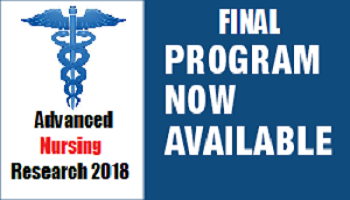
Robin Ann Foreman
King University, USA
Title: Coping strategies of prelicensure registered nursing students experiencing student-to-student incivility
Biography
Biography: Robin Ann Foreman
Abstract
Statement of the Problem: Incivility is rude or discourteous behavior that demonstrates a lack of respect for others. Some nurses purposefully target each other with uncivil behaviors. Incivility has invaded the nursing educational environment with deleterious results. Uncivil behaviors perpetrated by nursing students against other nursing students cause psychological and physiological distress for victims and witnesses. The purposes of this study were to identify the behaviors that constituted lateral student-to-student incivility, determine the frequency of experienced student-to-student incivility, and describe the coping strategies employed by prelicensure registered nursing students experiencing lateral student-to-student incivility.
Methodology & Theoretical Orientation: This quantitative descriptive study recruited prelicensure registered nursing students in associate degree, baccalaureate degree, and diploma programs using nonprobability convenience sampling through the email member list of a national student nursing organization. Critical social theory was the study framework to explore the meaning of civil and uncivil student-to-student interactions and behaviors in daily academic life. Participants completed the Ways of Coping (Revised) survey and the Incivility in Nursing Education Revised (INE-R) survey anonymously online via email accounts.
Findings: The most frequently occurring incivility behavior was the use of media devices for purposes unrelated to the current educational task. Planful problem-solving (PP) was the coping strategy most often employed by participants. Data was analyzed comparing participants’ nursing program levels, ages, genders, and ethnicities using descriptive statistics and Kruskal-Wallis analyses.
Conclusion & Significance: Four behaviors were identified as highly uncivil: threats about weapons; threats of physical harm; property damage; and discriminating comments toward others. This is a positive finding as civil societies consider these activities unacceptable, and often illegal. Recommendation for a universally accepted definition of academic incivility within the discipline of nursing is promoted so civil behavior can be modeled by educators and taught to students.

